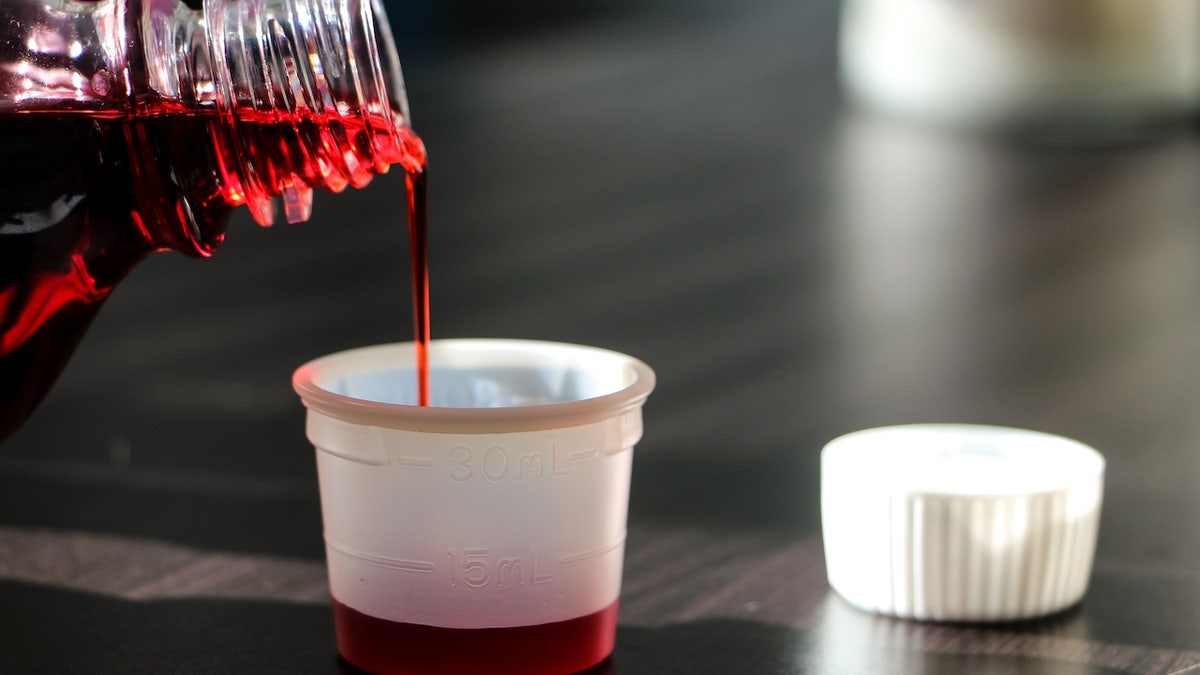Health
Los Angeles mom says kids with autism don’t need ‘fixing,’ urges greater understanding amid spike in cases

A mom of a child with autism is assuring other parents that their autistic children “do not need to be fixed” — rather, they need to be better understood.
Kelley Coleman, author of the upcoming book, “Everything No One Tells You About Parenting a Disabled Child,” is encouraging other parents not to be afraid of seeking out diagnoses.
“All that will do is keep us from being able to enable our children to be the best version of themselves,” the Los Angeles-based mother of two said in an interview with Fox News Digital.
11-YEAR-OLD AUTISTIC PIANO PRODIGY GOES VIRAL AFTER $15,000 SURPRISE GIFT FROM TEACHER
Coleman’s comments come as documented cases of autism spectrum disorder (ASD) have been on the rise.
In the New York-New Jersey metropolitan area alone, diagnoses among children spiked nearly 500% between 2000 and 2016, according to a study done early this year at Rutgers University in New Jersey.
Kelley Coleman (left) is pictured with her two sons, Aaron and Sean. (Kelley Coleman)
The study analyzed data from 8-year-olds, but the increase was prevalent across all races, genders and ethnicities, the study said.
CALIFORNIA MAN WITH SEVERE AUTISM BEATS RUBIK’S CUBE WORLD RECORD: ‘EXUBERANCE IN OUR HEARTS’
Coleman said her initial reaction to the Rutgers study was to forward it to “as many people” as possible.
“The prevalence of autism diagnosis and the incredible increase of diagnosis shouldn’t make parents fearful,” she said.

As the parent of a child with autism, mom Kelley Coleman encouraged other parents not to be afraid of diagnoses. One of her sons, Sean, is shown here. (Kelley Coleman)
“It should make parents aware that this is a major event in the medical history of our children — something that is being taken seriously, is being brought to the underserved communities, and is assisting us in supporting our children — because we need to know how our children’s brains work and how they experience the world,” she said.
RESEARCHERS USE ARTIFICIAL INTELLIGENCE TO HELP DIAGNOSE AUTISM, STUDY SAYS
Rutgers’ research contradicts previous findings that ASD most frequently co-occurs with intellectual impairment, according to a press release from the university.
Older studies had suggested that up to 75% of children with autism also have an intellectual disability, said lead study author Josephine Shenouda, an adjunct professor at the Rutgers School of Public Health, in a statement.

A Rutgers University study detected a 500% increase in autism cases from 2000 to 2016 in the New York-New Jersey metropolitan area. (iStock)
“What our paper shows is that this assumption is not true,” she said.
“In this study, two in three children with autism had no intellectual disability whatsoever.”
“We are now accurately identifying individuals who were missed before.”
Shenouda believes that better testing and awareness factored into the spike in numbers, the press release also indicated.
AUTISM RATES IN KIDS ON THE RISE, ESPECIALLY AMONG MINORITIES: CDC
Dr. Stephen Kanne, director of the NewYork-Presbyterian Center for Autism and the Developing Brain, was not involved in the study but suggested in an email to Fox News Digital that the increase is primarily due to “changes in diagnostic criteria.”
“We are now accurately identifying individuals who were missed before,” he said.
There has been a “virtual explosion” of autism awareness recently, Kanne also noted.

Stephen Kanne, PhD, director of the NewYork-Presbyterian Center for Autism and the Developing Brain, said there has been a “virtual explosion” of autism awareness recently. (NewYork-Presbyterian)
“Generally, parents and caretakers are more educated on the early signs of autism and have more access to resources and testing,” he said.
Kanne said that the findings of this study “shed light on the incredible advances in the health care system surrounding diagnostic testing and access to care.”

The increase in autism cases was prevalent across all races, genders and ethnicities, according to a new study done this year at Rutgers University. (iStock)
He added, “For example, specifically at the Center for Autism and the Developing Brain at NewYork-Presbyterian, patients, families and caretakers can receive comprehensive evaluation, treatment, education and support that is customized to their individual needs.”
CLICK HERE TO SIGN UP FOR OUR HEALTH NEWSLETTER
While a 500% increase might seem like a large and “alarming” figure, Kanne noted that the 16-year study points to the advancement of testing in that time period.
“The good news is that early identification helps to provide effective treatment supporting critical gains that can be made and supporting the families as needed,” he said.

Avoiding autism diagnoses will “keep us from being able to enable our children to be the best version of themselves,” author Kelley Coleman (not pictured) said to Fox News Digital. (iStock)
Highlighting the importance of support and knowledge, Coleman noted that parents of kids with autism should lean on their health care providers to answer any questions after a diagnosis.
“We are not trying to ‘therapy’ the autism out of a child,” she said. “That is not the goal.”
“The goal is to say, ‘Who is my child? How does their brain function and how can I support my child as their perfect, autistic self in functioning their best within the world?’”
The evidence of rising cases should not “lead to fear” in parents or the health care system, Coleman reiterated.
“We have information, and we need to better serve everyone, taking their neuro-type into account — not just looking at the majority of neuro-typical individuals.”
Her book is scheduled to be published in March 2024.

Health
Treating Other Diseases With Ozempic? Experts Weigh In | Woman's World

Sign Up
Create a free account to access exclusive content, play games, solve puzzles, test your pop-culture knowledge and receive special offers.
Already have an account? Login
Use left and right arrow keys to navigate between menu items.
Use escape to exit the menu.
Health
FDA bans red food dye due to potential cancer risk

FDA looks to ban red food dye
Celebrity fitness trainer Jillian Michaels joins ‘Hannity’ to discuss the possibility of the FDA banning red food dye.
The U.S. Food and Drug Administration (FDA) has officially banned red dye — called Red 3, or Erythrosine — from foods, dietary supplements and ingested medicines, as reported by the Associated Press on Wednesday.
Food manufacturers must remove the dye from their products by January 2027, while drug manufacturers will have until January 2028 to do so, AP stated.
Any foods imported into the U.S. from other countries will also be subject to the new regulation.
RED FOOD DYE COULD SOON BE BANNED AS FDA REVIEWS PETITION
“The FDA is taking action that will remove the authorization for the use of FD&C Red No. 3 in food and ingested drugs,” said Jim Jones, the FDA’s deputy commissioner for human foods, in a statement.
The U.S. Food and Drug Administration has officially banned red dye — called Red 3, or Erythrosine — from foods, dietary supplements and ingested medicines (iStock)
“Evidence shows cancer in laboratory male rats exposed to high levels of FD&C Red No.3,” he continued. “Importantly, the way that FD&C Red No. 3 causes cancer in male rats does not occur in humans.”
The synthetic dye, which is made from petroleum, is used as a color additive in food and ingested drugs to give them a “bright cherry-red color,” according to an online statement from the FDA.

Food manufacturers must remove the dye from their products by January 2027, while drug manufacturers will have until January 2028 to do so. (iStock)
The petition to ban the dye cited the Delaney Clause, which states that the agency cannot classify a color additive as safe if it has been found to induce cancer in humans or animals.
The dye was removed from cosmetics nearly 35 years ago due to potential cancer risk.
CLICK HERE TO SIGN UP FOR OUR HEALTH NEWSLETTER
“This is a welcome, but long overdue, action from the FDA: removing the unsustainable double standard in which Red 3 was banned from lipstick but permitted in candy,” said Dr. Peter Lurie, director of the group Center for Science in the Public Interest, which led the petition effort, as reported by AP.

Nearly 3,000 foods are shown to contain Red No. 3, according to Food Scores, a database of foods compiled by the Environmental Working Group. (iStock)
Dr. Marc Siegel, clinical professor of medicine at NYU Langone Health and Fox News senior medical analyst, applauded the FDA’s ban.
“It was a long time coming,” he told Fox News Digital. “It’s been more than 30 years since it was banned from cosmetics in the U.S. due to evidence that it is carcinogenic in high doses in lab rats. There needs to be a consistency between what we put on our skin and what we put into our mouths.”
“There needs to be a consistency between what we put on our skin and what we put into our mouths.”
Siegel said he believes the FDA’s decision could be tied to the incoming new head of the Department of Health and Human Services, Robert F. Kennedy Jr.
“They knew it would have happened anyway under RFK Jr.,” he said. “It is already banned or severely restricted in Australia, Japan and the European Union.”

The food additive also “drew kids in” to a diet of empty calories and ultraprocessed foods, one doctor stated. (iStock)
The food additive also “drew kids in” to a diet of empty calories and ultraprocessed foods, Siegel added.
“It has also been linked to behavioral issues in children, including ADHD.”
Nearly 3,000 foods are shown to contain Red No. 3, according to Food Scores, a database of foods compiled by the Environmental Working Group.
For more Health articles, visit www.foxnews.com/health
The National Confectioners Association provided the below statement to Fox News Digital.
“Food safety is the number one priority for U.S. confectionery companies, and we will continue to follow and comply with FDA’s guidance and safety standards.”
The petition to remove Red No. 3 from foods, supplements and medications was presented in 2022 by the Center for Science in the Public Interest and 23 other organizations and scientists.
Health
How Yvette Nicole Brown Lost Weight and Got Her Diabetes Under Control

Sign Up
Create a free account to access exclusive content, play games, solve puzzles, test your pop-culture knowledge and receive special offers.
Already have an account? Login
Use left and right arrow keys to navigate between menu items.
Use escape to exit the menu.
-
/cdn.vox-cdn.com/uploads/chorus_asset/file/25822586/STK169_ZUCKERBERG_MAGA_STKS491_CVIRGINIA_A.jpg)
/cdn.vox-cdn.com/uploads/chorus_asset/file/25822586/STK169_ZUCKERBERG_MAGA_STKS491_CVIRGINIA_A.jpg) Technology1 week ago
Technology1 week agoMeta is highlighting a splintering global approach to online speech
-

 Science6 days ago
Science6 days agoMetro will offer free rides in L.A. through Sunday due to fires
-
/cdn.vox-cdn.com/uploads/chorus_asset/file/23935558/acastro_STK103__01.jpg)
/cdn.vox-cdn.com/uploads/chorus_asset/file/23935558/acastro_STK103__01.jpg) Technology6 days ago
Technology6 days agoAmazon Prime will shut down its clothing try-on program
-

 News1 week ago
News1 week agoMapping the Damage From the Palisades Fire
-

 News1 week ago
News1 week agoMourners Defy Subfreezing Temperatures to Honor Jimmy Carter at the Capitol
-
/cdn.vox-cdn.com/uploads/chorus_asset/file/25826211/lorealcellbioprint.jpg)
/cdn.vox-cdn.com/uploads/chorus_asset/file/25826211/lorealcellbioprint.jpg) Technology6 days ago
Technology6 days agoL’Oréal’s new skincare gadget told me I should try retinol
-
/cdn.vox-cdn.com/uploads/chorus_asset/file/25832751/2192581677.jpg)
/cdn.vox-cdn.com/uploads/chorus_asset/file/25832751/2192581677.jpg) Technology2 days ago
Technology2 days agoSuper Bowl LIX will stream for free on Tubi
-

 Business4 days ago
Business4 days agoWhy TikTok Users Are Downloading ‘Red Note,’ the Chinese App














